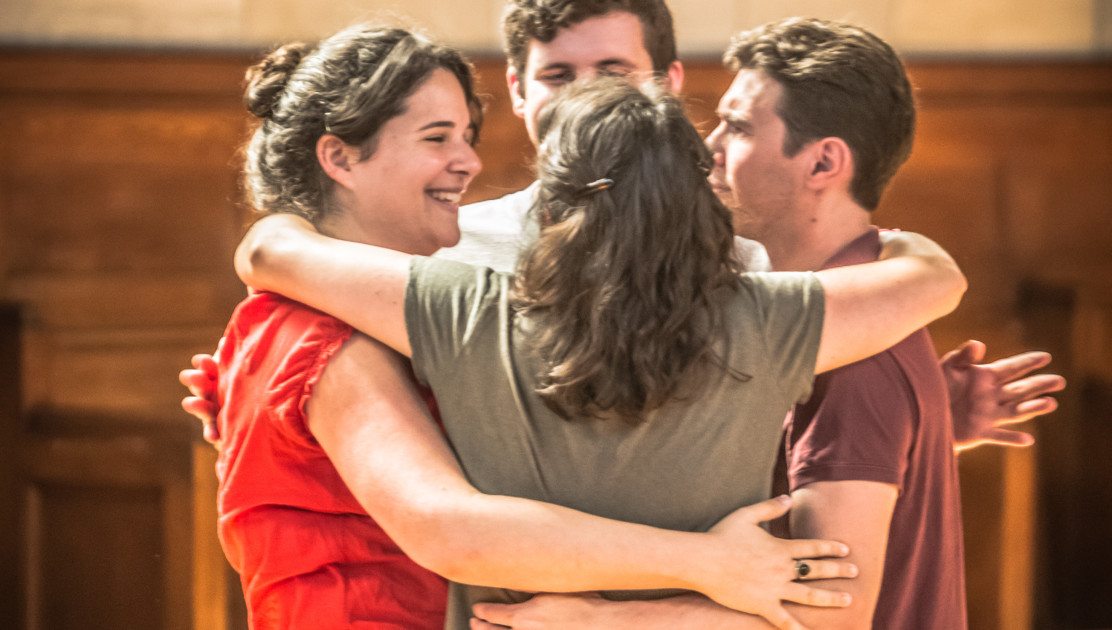A Hidden Force that Connects Us
Focusing on others can expand our perceptions
By Tara Bennett-GolemanOne rainy, windy day in New York City I needed to go to several appointments and meetings within a few blocks of each other. I decided to brave the elements and, with my tiny folding umbrella in hand and lightweight raincoat, walk from place to place.
Soon after I went outside, though, the wind blew open my umbrella and I got pretty wet. Thinking I could take a shortcut through a corner of a park, I stood at the street corner waiting for the light to change. I turned to the guy next to me and said, “Yucky weather, huh?”
He looked up toward the trees and said, unexpectedly, “But think of all the birds and plants that are happy to have water!”
That stopped me in my tracks. I said, “Right, thanks for the reminder!”
Now things appeared more in technicolor rather than black and white. I felt an inner fog lift, awakening a more sensitive attunement to the needs of my surroundings—rather than hurrying on to my next destination to find my own shelter from the storm.
My view of the world around me expanded, reframing what I saw along my rainy path as opportunities for a more caring heart. Barbara Frederickson, a psychologist at the University of North Carolina, has shown in her research that when we switch from a me-focused, pessimistic outlook to an other-focused, optimistic one, our perceptions actually expand. We take in more of the world around us, and can connect in a positive way. Clearly this is what happened to me.
At my next stop there was a guy standing at the door holding plastic umbrella coverings (there was no umbrella stand) to keep the tile floor from getting slippery. People waiting to get one seemed impatient—one fellow just walked past with his umbrella dripping, putting the guy with the coverings on edge.
I said to him, “Would it be alright if I just folded my umbrella and put it inside my bag? I’m trying not to use plastic because it harms the environment.”
His face softened as he appreciated what I was saying, and he replied, “Yes, of course.”
Later, as I walked down another street there was a homeless man sitting on the ground, covered in a blanket, with a cup in front of him. I had forgotten to keep some money handy, and thought I would just walk by. But something didn’t feel right—I remembered what my friends Bernie and Eve Glassman—who have lead Zen retreats on the streets of New York with people who live homeless for week—saying the biggest shock for people is that they suddenly don’t exist in the eyes of passersby once they seem homeless.
So I stopped and reached down into my bag to find something to offer, along with a warm greeting. A small gesture that I hoped would perhaps help him feel a little more seen and cared about.
I remember listening to the late author Peter Matthiessen talk about his efforts to try to save rare species from going extinct, and how he felt he was failing because of the overwhelming rate of species’ extinctions. In his unique way of bringing an honest perspective he added, “but then I remember Cesar Chavez saying about the environmental crisis, “If everybody did something, we could really turn things around.”
Drawing from a horse whispering principle, when we don’t set ourselves apart from the rest of the herd and look out for each other—and care for our collective home, the earth—there’s a larger force at work that connects us all.
What can seem like overwhelming challenges that face us can feel more workable. Together, change is possible.
Tara Bennett-Goleman is a psychotherapist, workshop leader, and author of New York Times bestseller Emotional Alchemy and Mind Whispering.
